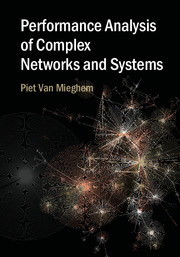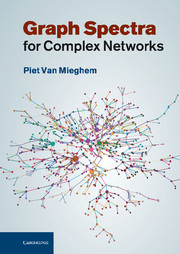Performance Analysis of Complex Networks and Systems
This rigorous, self-contained book describes mathematical and, in particular, stochastic and graph theoretic methods to assess the performance of complex networks and systems. It comprises three parts: the first is a review of probability theory; Part II covers the classical theory of stochastic processes (Poisson, Markov and queueing theory), which are considered to be the basic building blocks for performance evaluation studies; Part III focuses on the rapidly expanding new field of network science. This part deals with the recently obtained insight that many very different large complex networks – such as the Internet, World Wide Web, metabolic and human brain networks, utility infrastructures, social networks – evolve and behave according to general common scaling laws. This understanding is useful when assessing the end-to-end quality of Internet services and when designing robust and secure networks. Containing problems and solved solutions, the book is ideal for graduate students taking courses in performance analysis.
- Covers the basics of probability and includes problems and solved solutions, making the book self-contained and ideal for self-study
- Emphasises rigorous mathematical derivations, providing computational methods to solve realistic network problems analytically
- Dedicates a full chapter to a complete overview of SIS epidemics on networks
Product details
April 2014Hardback
9781107058606
688 pages
253 × 178 × 40 mm
1.38kg
103 b/w illus. 4 tables 104 exercises
Available
Table of Contents
- 1. Introduction
- Part I. Probability Theory:
- 2. Random variables
- 3. Basic distributions
- 4. Correlation
- 5. Inequalities
- 6. Limit laws
- Part II. Stochastic Processes:
- 7. The Poisson process
- 8. Renewal theory
- 9. Discrete-time Markov chains
- 10. Continuous-time Markov chains
- 11. Applications of Markov chains
- 12. Branching processes
- 13. General queueing theory
- 14. Queueing models
- Part III. Network Science:
- 15. General characteristics of graphs
- 16. The shortest path problem
- 17. Epidemics in networks
- 18. The efficiency of multicast
- 19. The hopcount and weight to an anycast group
- Appendix A. A summary of matrix theory
- Appendix B. Solutions to problems.






